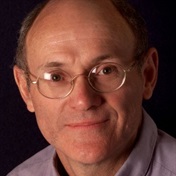
What the settlement between Dominion and Fox News shows, as well as the subsequent fallout with the sacking of Fox's star spreader of lies, Tucker Carlson, reveals is the media's social responsibility to the truth, writes George Claassen.
"Truth matters. Lies have
consequences … for our democracy to endure another 250 years and hopefully much
longer, we must share a commitment to facts."
These words by Justin Nelson, the attorney of Dominion, soon after the voting equipment company had settled its defamation case last week against Fox News for US$787 million, emphasise a wakeup call for all and sundry.
Nelson's words also remind us, as journalists and the millions who have become amateur "journalists" on social media platforms, that bending the truth and spreading falsehoods will not withstand the test of time.
When I read Nelson's statement outside court, the words Jonathan Swift wrote in 1710 in The Examiner came to mind:
"Besides, as the vilest Writer has his Readers, so the greatest Liar has his Believers; and it often happens, that if a Lie be believ'd only for an Hour, it has done its Work, and there is no farther occasion for it. Falsehood flies, and the truth comes limping after it; so that when Men come to be undeceiv'd, it is too late; the Jest is over, and the Tale has had its Effect…"
More than two centuries after Swift, the relationship between falsehood (fake news as we describe it today) and the truth was given a new meaning in the metaphor, unfortunately, wrongly attributed to Mark Twain that "a lie can travel halfway around the world before the truth can get its boots on" (Twain did not say this first, as an excellent investigation by the website Quote Investigator shows).
Determining the truth amid the propaganda and lies spreading like a virus in the social media era has become a daunting task for journalism.
How important the work of journalists is to advance democracy and to keep the public informed, to expose and counter misinformation, corruption, fraud, and other actions undertaken in the dark, is illustrated by journalists of News24 (Jeff Wicks) and GroundUp (Ray Joseph) celebrated with the Taco Kuiper award for their investigative reporting.
READ | Adriaan Basson: Celebrate our journalists, whistleblowers on Freedom Day
One of the building blocks of journalism is truth-telling, in which the spotlight of verified information shines in the dark.
Le Corbusier defined architecture as "the learned game, correct and magnificent, of forms assembled in the light".
Journalism, architecture, and science share this light-seeking characteristic.
In his illuminating book about the headlines behind state capture, So, for the record (Jonathan Ball Publishers), veteran journalist and professor in journalism Anton Harber describes the work of journalists "to shine light into dark holes".
More than a century ago, the English journalist, essayist and co-founder of the quarterly National Review, Walter Bagehot, described journalism's role as "letting in daylight upon magic".
Investigative journalism is not glamorous; it takes patience, hours, and hours, often many months, of forensically digging for the truth, of withstanding perpetrators trying to lead journalists up the garden path when their sources are silenced and often killed.
It is dangerous work that also often leads reporters and their editors to being threatened with costly lawsuits, even assassinated.
In 2022, 67 journalists were killed internationally, according to the annual report from the Committee to Protect Journalists. This is the highest number since 2018.
Threats and intimidation
To mention just three democratic countries as examples of how effective investigative journalism can bring inequities to light:
The spotlight cast by journalists exposed McCarthyism, Watergate, fought the Pentagon Papers court case, revealed the Iran-Contra scandal, the Roman Catholic child molesting atrocities, and Stormy Daniels bringing grief to Donald Trump's fortunes in the US.
Similarly in South Africa, the Information scandal of the 1970s, Dirk Coetzee and police hit squads, corruption in the Department of Correctional Services, state capture, the Tembisa Hospital corruption, Bosasa, Digital Vibes, Life Esidimeni deaths, Eskom corruption, the National Lottery corruption, Thabo Bester's escape from prison, far too many to mention.
In the UK, the Profumo scandal, Windrush, Partygate, Jeffrey Archer's incarceration.
In 2007, the Committee to Protect Journalists gave an overview of the deadliest countries for journalists to work in since 1991, listing Vladimir Putin's Russia as "the third deadliest country in the world for journalists" - then only overshadowed by Algeria (1993 to 1996) and Iraq after the invasion.
Anatoly Levin-Utkin in 1998, and Anna Politkovskaya's murder in 2006 in Russia, both exposing Putin's murderous regime, are prime examples of the dangerous environments into which journalists strive to bring the light.
Yet, the murder in 2017 of Daphne Caruana Galizia, the Maltese journalist who exposed corruption on the island, shows journalists are not necessarily safe in a democratic country.
Although South African journalists are in a far better situation than the apartheid era when journalists were locked up and constantly threatened with their lives, the SA Editors' Forum (Sanef) regularly reports incidents of threats and intimidation, even attacks, on local journalists.
Adriaan Basson, editor-in-chief of News24, and Nathan Geffen, editor of GroundUp, can testify to the constant threats against their investigative teams, as can Branco Brkic, editor-in-chief of Daily Maverick, and the investigative team of Sam Sole at amaBhungane's Centre for Investigative Journalism.
As public editor/ombud also for Media24's community papers, I can testify of editors all over the country being intimidated, threatened and bullied by local politicians and other often corrupt people who are exposed by these publications.
READ | John Matisonn: Stormy Daniels told the truth, while journalists’ lies cost R14bn
What the settlement between Dominion and Fox shows, as well as the subsequent fallout with the sacking of Fox's star spreader of lies, Tucker Carlson, reveals is the media's social responsibility to the truth and that it should be accountable when it does not adhere meticulously to telling the truth.
The media's watchdog role is in tandem with truth-telling and when the latter is distorted and bent to suit politicians' and other role players' agenda, journalism cannot, should not become part of the lies.
As journalists, we are accountable and through the self-regulatory system of ethical codes, we should strive, as the SA Press Code sets out, to "take care to report news truthfully, accurately and fairly".
As watchdogs, we can and should never be silenced, as emphasised by a former editor of The New York Times, A.M. Rosenthal, who observed: "[S]ilence is a lie. Silence has a loud voice. It shouts, nothing important is happening, don't worry. So, when something important is going on, silence is a lie."
The influence of Fox, Tucker, and here in South Africa lately, the Iqbal Survé Independent Group and the RET-Zuma faction to spread misinformation and lies is immense, as shown by a research study on the spreading of false news on Twitter by Soroush Vosoughi, Deb Roy and Sinan Aral, published in the journal Science in 2018.
They found fake news stories have a 70% higher chance to be retweeted than true stories. Furthermore, stories that have been verified as being true, take nearly six times as long to reach 1 500 people than it does for fake news to reach the same number of people.
The three researchers used a set
of data of rumour cascades - unbroken tweet chains - on Twitter from 2006 to
2017 and found about 126 000 rumours were spread by about three million people.
The top one percent of false news cascades spread to between 1 000 and 100 000 people, whereas the truth rarely spread to more than 1 000.
These statistics show how important the verification of news is and why the mainstream media, where professional journalists are employed, cannot renege on the truth.
In the words of Jeffrey Dvorkin, former president of the Organisation of News Ombudsmen (ONO) and Standards Editors, "trust is the essential lubricant that allows citizens to believe that their medium of choice is credible and reliable, even when they may disagree with the journalism. Trust is the common currency that media organisations require for their continued credibility".
- George Claassen is News24’s public editor and a board member of ONO.
*Want to respond to the columnist? Send your letter or article to opinions@news24.com with your name and town or province. You are welcome to also send a profile picture. We encourage a diversity of voices and views in our readers' submissions and reserve the right not to publish any and all submissions received.
Disclaimer: News24 encourages freedom of speech and the expression of diverse views. The views of columnists published on News24 are therefore their own and do not necessarily represent the views of News24.




 Publications
Publications
 Partners
Partners
























